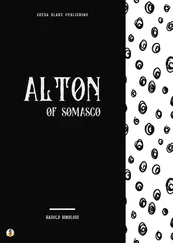Harold Bindloss - Hawtrey's Deputy
Здесь есть возможность читать онлайн «Harold Bindloss - Hawtrey's Deputy» — ознакомительный отрывок электронной книги совершенно бесплатно, а после прочтения отрывка купить полную версию. В некоторых случаях можно слушать аудио, скачать через торрент в формате fb2 и присутствует краткое содержание. Издательство: Иностранный паблик, Жанр: foreign_prose, на английском языке. Описание произведения, (предисловие) а так же отзывы посетителей доступны на портале библиотеки ЛибКат.
- Название:Hawtrey's Deputy
- Автор:
- Издательство:Иностранный паблик
- Жанр:
- Год:неизвестен
- ISBN:нет данных
- Рейтинг книги:4 / 5. Голосов: 1
-
Избранное:Добавить в избранное
- Отзывы:
-
Ваша оценка:
- 80
- 1
- 2
- 3
- 4
- 5
Hawtrey's Deputy: краткое содержание, описание и аннотация
Предлагаем к чтению аннотацию, описание, краткое содержание или предисловие (зависит от того, что написал сам автор книги «Hawtrey's Deputy»). Если вы не нашли необходимую информацию о книге — напишите в комментариях, мы постараемся отыскать её.
Hawtrey's Deputy — читать онлайн ознакомительный отрывок
Ниже представлен текст книги, разбитый по страницам. Система сохранения места последней прочитанной страницы, позволяет с удобством читать онлайн бесплатно книгу «Hawtrey's Deputy», без необходимости каждый раз заново искать на чём Вы остановились. Поставьте закладку, и сможете в любой момент перейти на страницу, на которой закончили чтение.
Интервал:
Закладка:
"Oh my!" he said. "Where's dear Jemima off in such a hurry?"
Winifred drew herself up. She was little and determined, and, it must be admitted, not quite unaccustomed to that kind of thing.
"Will you let me pass?" she said. "There's a policeman at the next turning."
"There really is," said one of them. "The Dook has another engagement. Dream of me, Olivia!"
A beat of heavy feet drew nearer, and the three roysterers disappeared in the direction of a flaming music-hall, where the second "house" was probably commencing, while Winifred, who had stepped into the gutter to avoid the one with the cane, turned as a stalwart, blue-coated figure moved towards her.
"Thank you, officer," she said; "they've gone."
The man merely raised a hand as if in comprehension, and plodded back to his post. Perhaps he felt sorry for young women who have to earn their living, for he had, at least, appeared promptly when he was needed; and perhaps he attached no great importance to the matter. There is a good deal that the policeman knows and accepts with undisturbed equanimity, which if plainly expressed would, no doubt, form a somewhat grim commentary on our complex civilisation.
In the meanwhile Winifred went on until she let herself into a house in a quiet street, and ascending to the second floor entered a simply furnished room. It, however, contained a piano; and a little table on which a typewriter stood amidst a litter of papers occupied the opposite side of it. The girl sloughed off her waterproof, and rather flung than hung it on a peg behind the door, after which she sat down in a low chair beside the little fire. She was not a handsome girl, and it was evident that she did not trouble herself greatly about her attire. Her face was too thin, her figure too slight and spare, but there was usually, even when she was anxious, as she certainly was that night, a shrewdly whimsical twinkle in her eyes, and though her lips were set her expression was compassionate.
She was, however, not the person to sit still very long, and in a minute or two she rose and placed a little kettle on the fire, after which she took a few scones, a coffee-pot, and a tin of condensed milk from a cupboard. When she had spread them out upon a table she discovered that there was some of the condensed milk upon her fingers, and it must be admitted that she sucked them. They were little, stubby fingers, which somehow looked capable.
"It must have been four o'clock when I had that bun and a cup of tea," she said.
She glanced at the table longingly: for she occasionally found it necessary to place a certain check upon a healthy appetite. She was, however, not singular in this respect, since the practice of such self-denial is, unfortunately, not a very unusual thing in the case of a good many young women in our cities who work remarkably hard. Then she resolutely shook her head.
"I must wait for Agatha," she said, and crossing the room towards the typewriter table stopped to glance at a little framed photograph that stood upon the mantel. It was a portrait of Gregory Hawtrey taken some years ago, and she apostrophied it with quiet scorn.
"Now you're wanted you're naturally away out yonder," she said. "You're like the rest of them – despicable!"
This seemed to relieve her feelings, and she sat down before the machine, which clicked and rattled for several minutes under her stubby fingers. Then the clicking ceased with sudden abruptness, and she prodded the mechanism viciously with a hairpin. As this appeared unavailing she used her forefinger, and when at length the carriage slid along the rod with a clash there was a smear of grimy oil upon her cheek and her somewhat tilted nose. The machine, however, gave no further trouble, and she endeavoured to make up some, at least, of the time she had spent at the concert. It was necessary that it should be made up, but she was also conscious that she was putting off an evil moment.
At length the door opened, and Agatha Ismay, wrapped in a long cloak, came in. She permitted Winifred to take it from her, and then sank down into a chair. There was a strained look in her eyes, and her face was very weary.
"You're working late again?" she said.
Winifred nodded. "It's the men who loaf, my dear," she said. "When you undertake the transcription of an author's scrawl at ninepence the thousand words you have to work unusually hard, especially when, as it is in this case, the thing's practically unreadable. Besides, the woman in it makes me lose my temper. If I'd had a man of the kind described to deal with I'd have thrashed him."
She was throwing words about, partly to conceal her anxiety, and partly with the charitable purpose of giving her companion time to approach the subject that must be mentioned as she thought best; but she rather over-did it, and Agatha looked at her sharply.
"Winny," she said, "you know. You've been there."
Winifred turned towards her quietly, for she could face a crisis.
"Yes," she said, "I have, but you're not going to talk about it until you have had supper. Don't move until I make the coffee."
She was genuinely hungry, but while she satisfied her own appetite she took care that her companion, who did not seem inclined to eat, made a simple meal. Then she bundled the plates into a cupboard, and sat down facing her.
"Well," she said, "you have broken down exactly as that throat specialist said you would. The first question is, How long it will be before you can go on again?"
Agatha laughed, a little harsh laugh. "I didn't tell you everything at the time: I've broken down for good."
There was a moment or two's tense silence after that, and then Agatha made a dejected gesture. "He warned me that this might happen if I went on singing, but what could I do? I couldn't cancel my engagements without telling people why. He said I must go to Norway and give my throat and chest a rest."
They looked at one another, and there was in their eyes the half-bitter, half-weary smile of those to whom the cure prescribed is ludicrously impossible. It was Winifred who spoke first.
"Then," she said, "we have to face the situation, and it's not an encouraging one. Our joint earnings just keep us here in decency – we won't say comfort – and they're evidently to be subject to a big reduction. It strikes me as a rather curious coincidence that a letter from that man in Canada and one from your prosperous friends in the country arrived just before you went out."
She saw the look in Agatha's eyes, and spread her hands out.
"Yes," she admitted; "I hid them. It seemed to me that you had quite enough upon your mind this evening. I don't know if they're likely to throw any fresh light upon the question what we're going to do."
She produced the letters from a drawer in her table, and Agatha straightened herself suddenly in her chair when she had opened the first of them.
"Oh," she cried, "he wants me to go out to him!"
Winifred's face set hard for a moment, but it relaxed again, and she contrived to hide her dismay.
"Then," she suggested with a trace of dryness, "I suppose you'll certainly go. After all, he's probably not worse to live with than most of them."
Miss Rawlinson was occasionally a little bitter, but she had, like others of her kind, been compelled to compete in an overcrowded market with hard-driven men. She was, however, sincerely attached to her friend, and she smiled when she saw the flash in Agatha's eyes.
"Oh," she added, "you needn't try to wither me with your indignation. No doubt he's precisely what he ought to be, and I dare say it will ease your feelings if you talk about him again; at least, it will help you to formulate your reasons for going out to him. I'll listen patiently, and try not to be uncharitable."
Agatha fell in with the suggestion. It was a relief to talk, and she had also a certain respect, which she would not always admit, for her companion's shrewdness. She meant to go, but she desired to ascertain how a less interested person would regard the course she had decided on.
Читать дальшеИнтервал:
Закладка:
Похожие книги на «Hawtrey's Deputy»
Представляем Вашему вниманию похожие книги на «Hawtrey's Deputy» списком для выбора. Мы отобрали схожую по названию и смыслу литературу в надежде предоставить читателям больше вариантов отыскать новые, интересные, ещё непрочитанные произведения.
Обсуждение, отзывы о книге «Hawtrey's Deputy» и просто собственные мнения читателей. Оставьте ваши комментарии, напишите, что Вы думаете о произведении, его смысле или главных героях. Укажите что конкретно понравилось, а что нет, и почему Вы так считаете.












